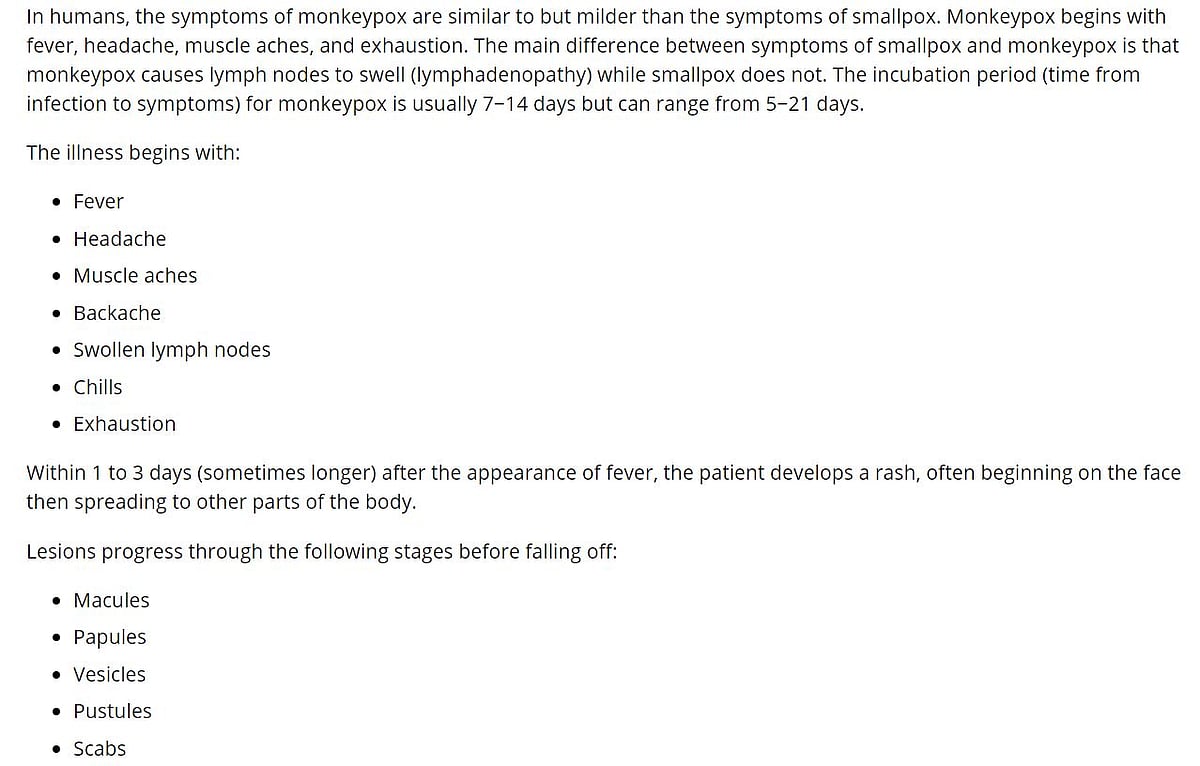As the COVID-19 pandemic rages on, a new virus has emerged in the US. The Centers for Disease Control and Prevention (CDC) and the Texas Department of State Health Services confirmed on July 15 that a case of human monkeypox had been reported in an traveller recently returned from Nigeria. This is the first case of the rare illness to be reported in the US since 2003.
The individual in question remains hospitalised, and the CDC is working with officials to track down anyone who may have had contact with the patient. But with travellers on flights being required to wear masks and take other precautionary measures, a CDC statement indicates that the risk of tansmission is considered low.
In 2003 there had been a monkeypox outbreak after the virus spread from imported African rodents to pet prairie dogs. Till date however, the US has reported less than 50 cases from the virus. It is found predominantly in Africa, with human monkeypox infections being documented only six times outside of Africa till date. In 2021, the United Kingdom has also reported three cases of monkeypox.
Monkeypox is usually a self-limited disease with the symptoms lasting from two to four weeks. Severe cases occur more commonly among children and are related to the extent of virus exposure, patient health status and nature of complications. Complications of monkeypox can include secondary infections, bronchopneumonia, sepsis, encephalitis, and infection of the cornea with ensuing loss of vision.
There are presently no proven cures or treatment for monkeypox virus infection. According to the CDC, smallpox vaccine, antivirals, and vaccinia immune globulin (VIG) is used in the US to counter it.





